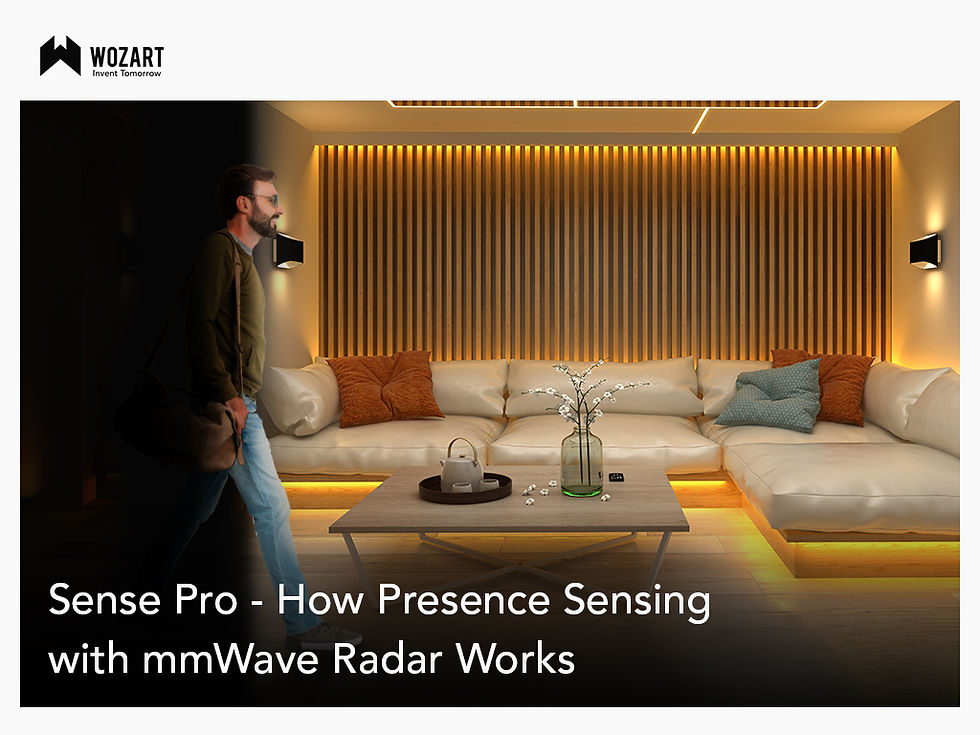Why Smart Homes Sell Faster: A Developer’s Advantage
- Sep 25, 2025
- 3 min read
Updated: Oct 7, 2025
In today's competitive real estate market, developers are constantly seeking ways to differentiate their projects and accelerate sales cycles. The answer increasingly lies in smart home technology – a game-changing factor that's transforming how buyers make purchasing decisions and how quickly properties move off the market.

The Numbers Don't Lie
Recent market data reveals a compelling story. Properties equipped with smart home features sell 3.5% faster than conventional homes, with some markets experiencing reductions in days on market by up to 30%. More importantly for developers, smart-enabled properties command price premiums of 5-10%, directly impacting project profitability and ROI. But speed isn't just about the final sale, it's about the entire customer journey, from initial interest to closing. Smart homes create a competitive moat that accelerates every stage of the sales funnel.
The Psychology Behind Faster Sales
Today's homebuyers, particularly millennials and Gen Z, who comprise a significant portion of the market, view smart home capabilities as essential infrastructure rather than luxury add-ons. They're not just buying a home; they're investing in a lifestyle that won't become obsolete. This urgency translates directly into faster decision-making and reduced negotiation cycles. Smart home features provide instant emotional satisfaction during property viewings while promising ongoing utility savings. When prospects can control lighting, climate, and security systems during their first visit, the experience becomes memorable and decisive. Properties that offer this immediate "wow factor" see 40% higher conversion rates from viewing to offer. Buyers of smart-enabled homes report higher confidence in their purchase decisions. The transparency of energy monitoring, security features, and home automation reduces the anxiety typically associated with major purchases, leading to faster commitment and fewer deal fallouts.
The Developer's Strategic Advantage: Beyond Individual Sales
For developers managing multiple units or phases, smart home integration creates a velocity advantage across the entire portfolio. Early adopters become brand ambassadors, generating word-of-mouth marketing that accelerates sales of remaining inventory. Projects with smart features typically see 25% faster phase completion rates.
Unlike structural upgrades or premium finishes, smart home systems can be integrated cost-effectively while delivering disproportionate value perception. The technology serves as a differentiator that justifies premium pricing without substantially increasing base construction costs.
ROI Beyond the Sale: Long-term Developer Benefits
Developers who consistently deliver smart-enabled properties build reputations as innovation leaders. This brand positioning commands premium pricing across all projects and creates competitive barriers that extend far beyond individual sales cycles.
Smart home systems with remote diagnostics and proactive maintenance capabilities reduce post-sale service demands. Developers report 40% fewer warranty calls on smart-enabled properties, improving customer satisfaction while reducing costs.
Your Smart Home Strategy
The opportunity for developers is clear: smart home integration accelerates sales cycles, commands premium pricing, and builds long-term competitive advantages. The technology has matured to the point where implementation risks are minimal while returns are substantial and measurable. Success requires strategic implementation focused on buyer experience rather than technical complexity. The goal isn't to showcase every available feature, but to demonstrate value, convenience, and future-readiness in ways that resonate with your target buyers.
Smart homes don't just sell faster, they sell better, to more satisfied customers, at higher margins. For developers serious about market leadership and sustainable profitability, smart integration has evolved from a competitive advantage to a market necessity.
The question isn't whether smart homes represent the future of residential development. The question is how quickly you'll adapt your strategy to capture the advantages they offer today.



Comments